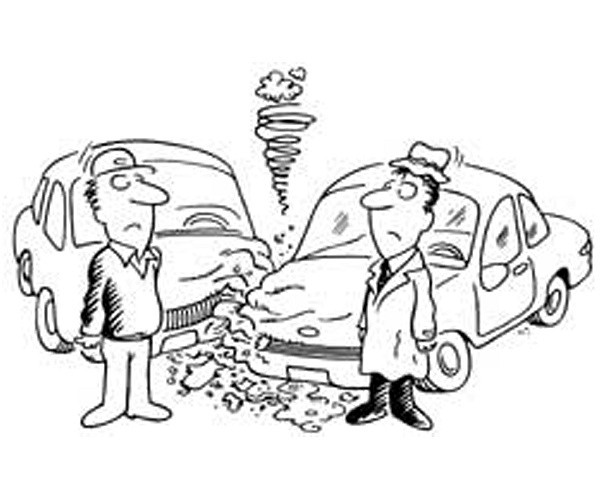
If you’ve recently been in a situation that calls your driving record into question – from a car
crash to a speeding ticket, or even something as severe as a DUI – then aside from the financial
and social implications, another serious burden you will have to bear is an increased insurance
premium. Insurance policies are built and priced based on a wide range of factors. Although
each company approaches pricing from a different angle, keep in mind some of these six basic
insurance-rating features.
Age: Drivers in their teens and early twenties pay the highest rates, due to increased
road aggression and a lack of experience.
Gender: Although CBS points out that women may experience road rage more
frequently than men, The Guardian asserts that women do much less damage when
behind the wheel – and thus pay less in insurance premiums than their male
counterparts.
Location: Some states call for higher premiums than others – New Jersey is one of the
most expensive states to insure your vehicle.
Car Model: New and foreign cars cost more in the insurance business, because their
repairs are harder to finance.
Car Usage: If you only drive on the weekends, then your insurance rates will go down –
and the opposite is true if you use your car on a daily basis.
Driving Record: Finally, your driving record can help a company determine what kind of
risk you are on the road – and the riskier it is to cover you for damages, the more an
insurance provider will bill you to stay financially liable.
The spottier your driving record, the higher your insurance rates – that’s the rule. However,
while you might not be able to get the same rates as someone with a spotless driving record,
you do have a plethora of options to try and pay as little as possible.
There are many factors to consider with your driving record – aside from DUIs and speeding
tickets, not having prior insurance while driving also nets you higher rates. Accidents also cause
rates to go up – but only if they are severe. If a scratch, bump or minor fender-bender is the
issue at hand, then your insurance cost won’t see a major hike, that is, if you even want to put a
claim in.
Contest Your Record
Just because you get a ticket for speeding or drunk driving doesn’t mean you were actually
speeding, or driving under the influence. If you were unfairly charged with a ticket, an attorney
can help you contest your ticket.
There are several ways to combat a ticket, depending on the situation. Being charged with a
ticket outside of a checkpoint is one, as is being given a ticket without sufficient evidence, or
due to misleading evidence. Breathalyzers can be fooled by a strong mouth rinse, for example,
and cognition tests can be failed due to medical anomalies rather than alcohol.
In the world of rate hike prevention, getting a ticket for something like a broken tail light can
also quickly be fixed. And it really should be. If you get your car back in shape immediately after
being issued a ticket, then chances are that you could avoid the associated rate hike and let the
incident fly under your insurance company’s notice.
Shop Around
The most important part to getting a good insurance quote – even with a spotty record – is in
shopping around. Compare rates, and compare hikes – some insurance rates barely rise after a
minor accident, while others might punish you by as much as a 30 percent for a single speeding
ticket. Using comparison sites like CoverHound allow you to explore the best car insurance
quotes so you can determine what the best plan for you is. Keep on the lookout for a provider
with attractive discount options, fair rates and customer loyalty programs – and then negotiate,
working with them to build the kind of policy that works best for everyone involved.
Make Efforts to Lower Your Risk Factor
A great and simple way to get yourself labeled as less of a risk is by taking a driving course. A
cheap and quick course can go a long way in showing an insurance company that you’re serious
about improving your driving skills.
Consider All Possible Discounts
Contact your insurance provider and go over all the different discounts you may be eligible for.
If you’re a student, having great grades can in some cases lead to lower rates – alternatively, if
you’re a government worker or in the military, most insurance providers have special discounts
for you as well.
Guest post from writer Jenna Carter.







